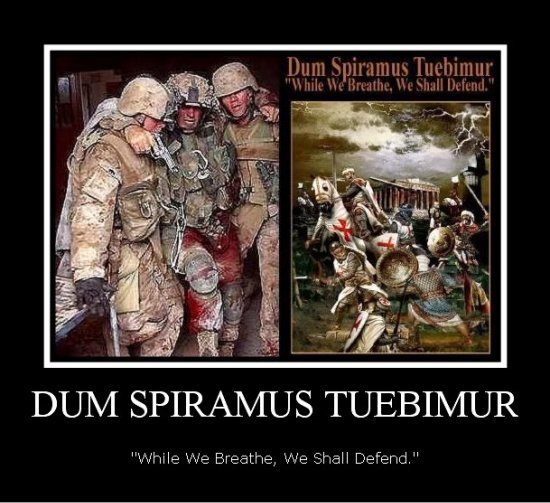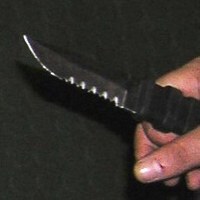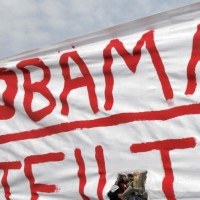![]()
Friday, November 02, 2001 | National Review Online | By Thomas F. Madden
The abuse of Christianity’s holy wars
Since September 11 the crusades are news. When President Bush used the term “crusade” as it is commonly used, to denote a grand enterprise with a moral dimension, the media pelted him for insensitivity to Muslims. (Nevermind that the media used the term in precisely the same way before the “gaff.”) Attempting to capitalize on this indignation, the leader of the Taliban, Mullah Omar, crowed “President Bush has told the truth that this is a crusade against Islam.” Yet clearly the crusades were much on the minds of our enemies long before Bush brought them to their attention. In a 1998 manifesto, cosigned by the leaders of Islamist groups in Egypt, Pakistan, and Bangladesh, Osama bin Laden declared war against the “Jews and the Crusaders.” If you didn’t guess, the Americans are the crusaders here. On the day the U.S. strikes on Afghanistan began, in a live-from-a-cave address, bin Laden declared Bush to be “the leader of the infidels” in a worldwide war against Islam. He previously warned that “crusader” Bush would lead the infidel forces into Afghanistan “under the banner of the cross.”
So, what do the medieval crusades have to do with all this? After all, doesn’t the Muslim world have a right to be upset about the legacy of the crusades? Nothing and no.
The crusades are quite possibly the most misunderstood event in European history. Ask a random American about them and you are likely to see a face wrinkle in disgust, or just the blank stare that is usually evoked by events older than six weeks. After all, weren’t the crusaders just a bunch of religious nuts carrying fire and sword to the land of the Prince of Peace? Weren’t they cynical imperialists seeking to carve out colonies for themselves in faraway lands with the blessings of the Catholic Church? A couch potato watching the BBC/A&E documentary on the crusades (hosted by Terry Jones of Monty Python fame no less) would learn in roughly four hours of frivolous tsk-tsk-ing that the peaceful Muslim world actually learned to be warlike from the barbaric western crusaders. No wonder, then, that Pope John Paul II was excoriated for his refusal to apologize for the crusades in 1999. No wonder that a year ago Wheaton College in Illinois dropped their Crusader mascot of 70 years. No wonder that hundreds of Americans and Europeans recently marched across Europe and the Middle East begging forgiveness for the crusades from any Muslim or Jew who would listen. No wonder.
Now put this down in your notebook, because it will be on the test: The crusades were in every way a defensive war. They were the West’s belated response to the Muslim conquest of fully two-thirds of the Christian world. While the Arabs were busy in the seventh through the tenth centuries winning an opulent and sophisticated empire, Europe was defending itself against outside invaders and then digging out from the mess they left behind. Only in the eleventh century were Europeans able to take much notice of the East. The event that led to the crusades was the Turkish conquest of most of Christian Asia Minor (modern Turkey). The Christian emperor in Constantinople, faced with the loss of half of his empire, appealed for help to the rude but energetic Europeans. He got it. More than he wanted, in fact.
Pope Urban II called the First Crusade in 1095. Despite modern laments about medieval colonialism, the crusade’s real purpose was to turn back Muslim conquests and restore formerly Christian lands to Christian control. The entire history of the crusades is one of Western reaction to Muslim advances. The crusades were no more offensive than was the American invasion of Normandy. As it happened, the First Crusade was amazingly, almost miraculously, successful. The crusaders marched hundreds of miles deep into enemy territory and recaptured not only the lost cities of Nicaea and Antioch, but in 1099 Jerusalem itself.
The Muslim response was a call for jihad, although internal divisions put that off for almost fifty years. With great leaders like Nur ed-Din and Saladin on the Muslim side and Richard the Lionheart and St. Louis IX on the Christian side, holy war was energetically waged in the Middle East for the next century and a half. The warriors on both sides believed, and by the tenets of their respective religions were justified in believing, that they were doing God’s work. History, though, was on the side of Islam. Muslim rulers were becoming more, not less powerful. Their jihads grew in strength and effectiveness until, in 1291, the last remnants of the crusaders in Palestine and Syria were wiped out forever.
But that was not the end of the crusades, nor of jihad. Islamic states like Mamluk Egypt continued to expand in size and power. It was the Ottoman Turks, though, that built the largest and most awesome state in Muslim history. At its peak in the sixteenth century, the Ottoman Empire encompassed all of North Africa, the Near East, Arabia, and Asia Minor and had plunged deep into Europe, claiming Greece, Bulgaria, Albania, Hungary, Croatia, and Serbia. Under Suleiman the Magnificent the Turks came within a hair’s breadth of capturing Vienna, which would have left all of Germany at their mercy. At that point crusades were no longer waged to rescue Jerusalem, but Europe itself. Christendom had been shrinking for centuries. The smart money was all on Islam as the wave of the future.
Of course, that is not how it turned out. But surprisingly the rise of the West was not the result of any military victory against Muslims. Indeed, the Ottoman Empire survived largely intact until the end of World War I. Instead, something completely new and totally unpredictable was happening in Europe. A new civilization, built on the old to be sure, was forming around ideas like individualism and capitalism. Europeans expanded on a global scale, leaving behind the Mediterranean world, seeking to understand and explore the entire planet. Great wealth in a commercial economy led to a fundamental change in almost every aspect of Western life, culminating in industrialization. The Enlightenment turned Western attention away from Heaven and toward the things of this world. Soon religion in the West became simply a matter of personal preference. Crusades became unthinkable — a foolishness of a civilization’s childhood.
As for the Islamic world, it was left behind. Even today Muslim countries struggle to catch up. It is a difficult task, for they are seeking to reconcile their own culture with modern concepts that are uniquely western. Invariably this tension has led to charges among Muslims that their religion and their world is being sold out. Those Muslim leaders who have dealt with the West have been labeled apostates and sometimes targeted by jihad warriors. Indeed, the vast majority of Islamist terrorism over the last century has been aimed at other Muslims. The division, starkly put, is between those who wish to adopt the benefits of Western culture while retaining a devotion to Islam and those who consider any concession to the West to be an abjuration of faith. In short, it is a division between the medieval and the modern worlds.
Which brings us back to the crusades. If the Muslims won the crusades (and they did), why the anger now? Shouldn’t they celebrate the crusades as a great victory? Until the nineteenth century that is precisely what they did. It was the West that taught the Middle East to hate the crusades. During the peak of European colonialism, historians began extolling the medieval crusades as Europe’s first colonial venture. By the 20th century, when imperialism was discredited, so too were the crusades. They haven’t been the same since. In other words, Muslims in the Middle East — including bin Laden and his creatures — know as little about the real crusades as Americans do. Both view them in the context of the modern, rather than the medieval world. The truth is that the crusades had nothing to do with colonialism or unprovoked aggression. They were a desperate and largely unsuccessful attempt to defend against a powerful enemy.
That’s the thing about bin Laden, he is a troublesome mix of the modern and the medieval. He and his lieutenants regularly fulminate about the “nation,” a reference to a Muslim political unity that died in the seventh century. They evoke an image of the crusades colored with the legacy of modern imperialism. And they call for jihad, demanding that every Muslim in the world take part. In short, they live in a dream world, a desert cloister where the last thousand years only partially happened.



 RSS
RSS











Crusade Propaganda #middleeast #islam #crusades #jihad #christianity http://j.mp/93NP2s
RT @CrethiPlethi: Crusade Propaganda #middleeast #islam #crusades #jihad #christianity http://j.mp/93NP2s
Then there is the small matter of the christian crusaders killing so many people along the way. How many were killed during muslim expansion. Also, in muslim middle east, there are large christian minorities, whereas in christian spain, there are no muslims. There is a big difference.